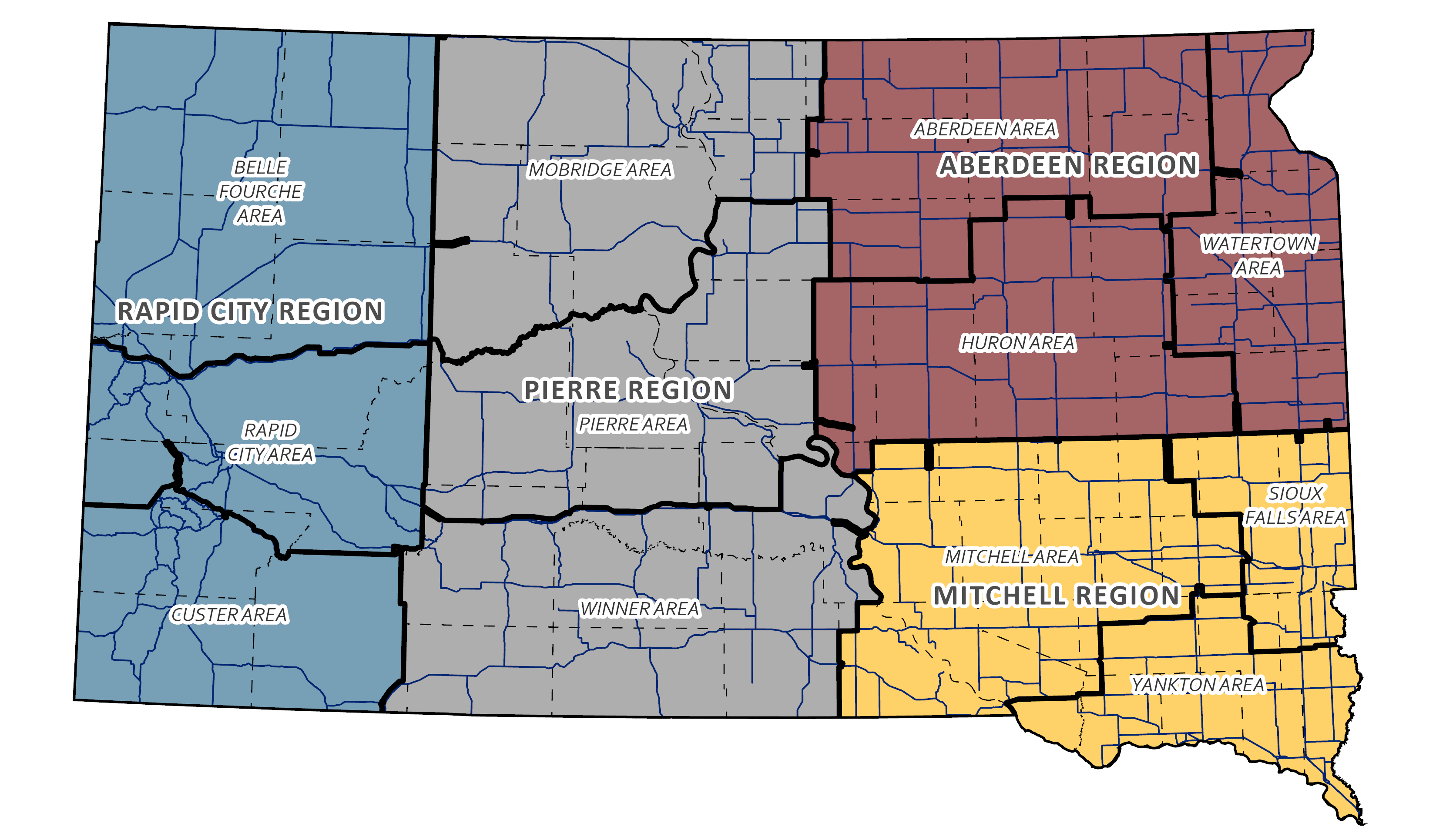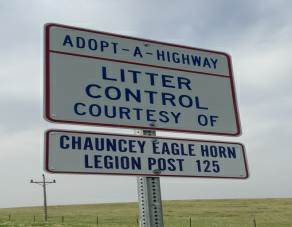South DakotaDepartment of Transportation
Transportation
Aviation
About Office of Aeronautics Services
Office of Aeronautics Services
Airports Conference
Aerospace Education
Airport Information
Links
Aviation Systems Plan
Bridges
Office of Bridge Design
Design & Plans
Historical Bridges
Inventory & Inspection
Posted Structures
Reference Information
SD Bridge Photos
Doing Business
Certification & Accreditation
About Certification & Accreditation
SDDOT Accreditation Certification List
Approved Products
Manuals & Documents
Welding Certifications
Training
Contractors
Bid Letting Information
Concrete Pipe Release
Contractors/Suppliers
Prequalified Contractors
CMS Web Reports
Disadvantaged Business Enterprise (DBE)
Fuel Price Index
Labor Compliance
Materials
Preconstruction Meetings
Price Adjustment Guidelines
Standard Specifications
Subcontract Requirements
Forms & Documents
Webinars
Alternative Contracting
Engineering/Design Services
Consultant Services
Downloadable Files
Manuals
News & Updates
Right of Way / Relocation Assistance
Standard Bid Items
Standard Plates
Surveyors
Utility Coordination
Environmental
About Environmental
Agreements
Endangered Species
Environmental Assessments
Forms
Public Involvement
Stormwater
Wetland Mitigation
Local Governments
About Local Governments
Bridge Improvement Grants
City/County Fund Balances
Emergency Relief (ER)
Federal Bridge Program
Forms & Documents
Secure Accounts Billing
Transportation Economic Development Grants
Urban Systems
Rural Access Infrastructure Fund Program
Traffic Incident Management
Training
Projects & Studies
Planning
Carbon Reduction Strategy
Freight Plan
Long Range Plan
Metropolitan Planning Organization
Non-state Public Road Inventory
Pavement Condition Monitoring
Pavement Management
South Dakota EV Fast Charging Plan
Statewide Transportation Improvement Program – STIP
Transportation Asset Management Plan (TAMP)
Inside SDDOT
Forms & Publications
Brochures
Forms
Manuals
Maps
Newsletters
Reports
SDDOT Engagement Opportunities
Join One of Our Contact Lists
Press Releases
Media Kits
News Stories
Branding and Identity Guidelines
Learn More about the SDDOT Logo
SDDOT Blog
Equal Employment Opportunity (EEO)
Equal Employment Opportunity (EEO)
General Information
EEO is defined as "the absence of partiality or distinction in employment treatment so that the rights of all persons to work and advance on the basis of merit and potential is maintained."
EEO Applies to all federal-aid contracts and subcontracts over $10,000.
Contractors agree to be an EEO employer when they sign the federal-aid contract. By their signature, these employers have agreed that all personnel matters for projects will be handled without regard to race, creed, color, sex, disability, age, religion or national origin. This means the contractor is required to do the following:
EEO Applies to all federal-aid contracts and subcontracts over $10,000.
Contractors agree to be an EEO employer when they sign the federal-aid contract. By their signature, these employers have agreed that all personnel matters for projects will be handled without regard to race, creed, color, sex, disability, age, religion or national origin. This means the contractor is required to do the following:
- Adopt an EEO policy
- Company policy must be posted on the job site bulletin boards
- Disseminate the policy to the workers through various means including company meetings, written notices, etc.
- Post appropriate EEO-related posters on the job site bulletin board
- Equal Employment Opportunity Commission Know Your Rights (English) (Revised June 2023)
- Equal Employment Opportunity Commission Know Your Rights (Spanish) (Revised June 2023)
- EEO #7 (EEO Policy Statement & Company EEO Officer) (Revised September-2022)
- Identify an EEO Officer and establish in writing the job duties
- Actively recruit beyond the traditional sources to attract minority/female applicants such as TERO/TECRO Offices:
Recruitment sources for contractors - Review all personnel actions to ensure actions taken are in compliance with company EEO policy
- Develop a basic complaint procedure
- Retain records of employment and personnel actions for a three-year period from the date of project closing
- Complete the EEO #1391 form including all federal-aid projects on one form. Staffing data should represent the project workforce on board in all or any part of the last payroll preceding the end of July.
- Other areas as specified in the special provisions.
FHWA 1391 Reporting period is July 19-25, 2026. Forms are due to the Civil Rights Office by August 20, 2026. All contractors and subcontractors on federal-aid highway construction projects need to consolidate multiple projects on one form to cover all federal-aid projects.
- FHWA 1273
Required Contract Provision, Federal-Aid Construction Contracts (commonly referred to as the "pink sheets") - EEO Affirmative Action Requirements (Executive Order 11246)
EEO Affirmative Action Requirements on Federal and Federal-Aid Construction Contracts
Contractor Compliance Reviews
Contractor Compliance Reviews are conducted throughout the State during construction season. These reviews are to verify that the Contractor is complying with the Special Provisions on EEO.
Forms and Instructions
The forms and instructions mentioned above, along with two special provisions regarding EEO in the contract, are available on the forms and documents page:
Contractor Compliance Review Forms & Instructions:
- EEO Contractor Compliance Review Instructions - 2012 (On-Site Reviews)
- EEO Contractor Compliance Review Instructions - Desk Reviews 2012
- Desk Review Questionnaire
- List of Contracts (Form #1-2011)
- Contractors Employment Summary (Form #2-2011)
- Contractor Work Force Utilization - Employee Count (Form #3-2012A)
- Contractor Work Force Utilization - Hours Worked (Form #3-2012B)
- List of Subcontractors (Form #4-2012)
- Subcontractor Information (Form #5-2011)
- Contractors Training Program (Form #6-2012)
To report any unfair employment practices that may be based on race, color, religion, sex, national origin, age, any disability a person may have, or any sexual or racial harassment, contact: June Hansen the contact information below.
175
June Hansen
Civil Rights Compliance Officer / ADA Coordinator
605-773-3540
© 2026 State of South Dakota. All Rights Reserved.
South Dakota Department of Transportation
Becker-Hansen Building
700 E. Broadway Ave.
Pierre, SD 57501
Becker-Hansen Building
700 E. Broadway Ave.
Pierre, SD 57501
Powered by:
Modern Logic
Modern Logic
Region & Area Offices
Travelers
© 2026 State of South Dakota. All Rights Reserved.
South Dakota Department of Transportation
Becker-Hansen Building
700 E. Broadway Ave.
Pierre, SD 57501
Becker-Hansen Building
700 E. Broadway Ave.
Pierre, SD 57501
Powered by:
Modern Logic
Modern Logic




